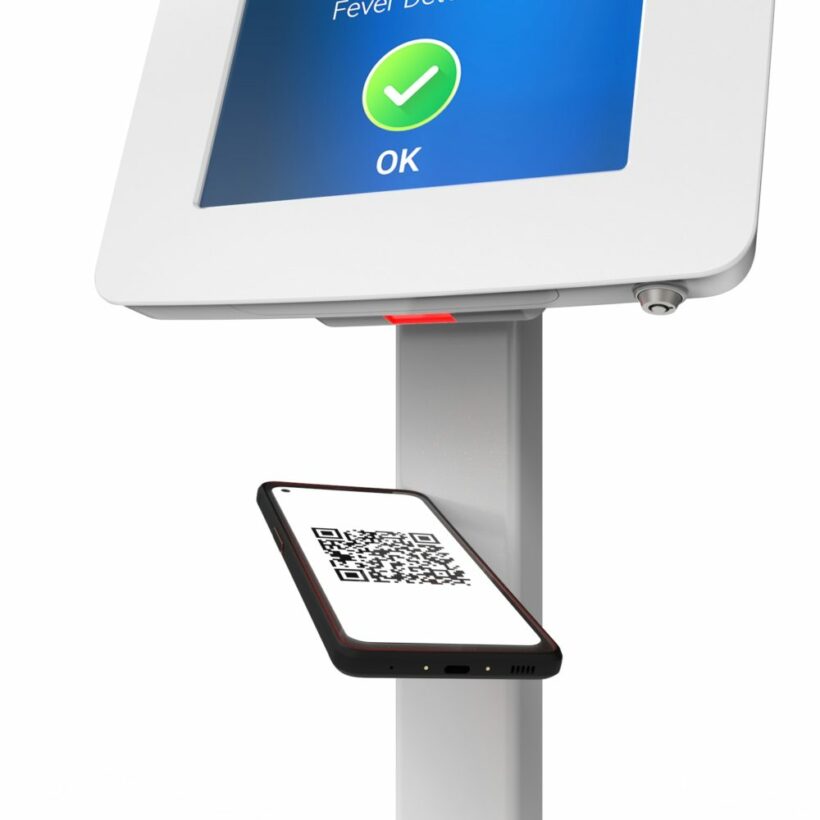What large events will look like after COVID-19
The events industry has been hit hard by the coronavirus and, since events are a proven vehicle for spreading the virus, the future of the industry is uncertain.rnrnWe take a look at how technology will support and safeguard the events industry.

Virtual and Hybrid Events
Virtual events are already taking place and many more hybrid events are popping up. Lockdown really tested our reliance on a world connected by Wi-Fi, and we coped exceptionally well. Virtual events are a risk free way of hosting large events without contact. Hybrid events are the happy medium between physical events and participating only online – a smaller group of people attend in person, whilst it is live streamed to a larger, online audience.rnrnWithout a vaccine and whilst there are still travel quarantines and the virus is still widely circulating, virtual and hybrid events will be the new normal for the industry.rnrn

Travel
When in-person events return, many will have to travel using some form of public transport – this needs to be taken into account when issuing the invites or checking attendance prior to the event. Advice to wear face masks, avoid public transport where possible and social distance from other passengers should be given in advance of the event.

Staff Check-in
Events employ a huge amount of staff to ensure that everything runs smoothly. Rather than having a human-to-human check-in point for staff, event hosts can employ a kiosk which scans a code, uses facial recognition and/or takes and prints a photo for a physical staff pass. All these devices can be integrated into an iH enclosure for maximum efficiency.

Temperature Checks
On arrival temperature checks should be issued to mitigate risk of the spread of the virus from symptomatic attendees. If anyone has a fever, they will be denied entry. Kiosks installed with a thermal, temperature check camera can automatically fever-check for optimum efficiency on entry and is a socially distanced alternative to needing someone to administer temperature checks via a temperature scanning gun.

Registration
Registration is now even more important, due to the requirements of track and trace. The company hosting the event need to be able to contact all the attendees should someone be tested positive for Covid-19. This can be done via sign up forms on a tablet kiosk, or QR codes – a frictionless registration.rnrnThe visitor signs up prior to the event, who will then be issued with a QR code. Kiosks on entrance will be fitted with a barcode scanning device so that guests can scan their unique QR code to check in and grant access to the event. This will automatically create a list of contacts for the hosts, for post-event marketing and track and trace should it be required. These QR code scanners can be fitted to the entry temperature check kiosk.

Social Distancing, Room Layout & Digital Signage
Social distancing is vital for mitigating the risk of virus transmission. Clear floor markings should show an adequate distance for any locations that may require queuing and the layout should ensure a 1/2m distance between seats and participants.rnrnDigital signage is an ideal solutions for adapting messaging depending on the government advice at the time of the advice. It also makes navigating the event location clearer and safer.

Mobile Apps, Social Media and Touchless Participation
Physical contact at events must be minimised as much as possible at events, therefore we must make use of the devices that we already have at our disposal. Questions can be asked via hash tags on social media, to keep a high level of engagement at the event.rnrnPlus, specific apps for the event can be used to participation, engaging with other attendees and navigation of the location.rnrnWe developed a handheld kiosk (pictured below with a Samsung Galaxy Xcover Pro) for ease when navigating an event or restaurant to make quick and simple payments when on the move.

Self-service
There has been a surge in self-service across a multitude of industries since the coronavirus outbreak, this will be no different for events. Catering will change to a tablet/kiosks/app ordering menu and self-service kiosks will man the retail elements.rnrnContactless payment devices, scales and tablets displaying the menus can all be fitted into a kiosks inclosure for a frictionless catering solution.

Isolating and Contact Tracing
Lists can be automatically generated from the sign in form or QR code scanner. The automation doesn’t stop there – the relevant information can be pre-prepared and mailed to the relevant attendees to ensure that contact tracing and isolation is put into motion. The email can also trigger an alert to the relevant authorities to ensure that a potential outbreak is adequately monitored.rnrn rnrnAs a whole, large events will suffer more than smaller events, which are more easily managed. This will be an ongoing struggle through 2020 and potentially into 2021 depending on the climate at the time. Virtual events will prevail over the risk of physical events, however, there are precautions and actions that can be put in place to minimise risk and bring the events industry back onto its feet.